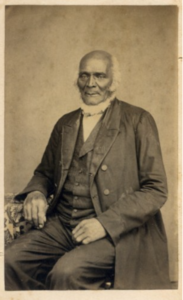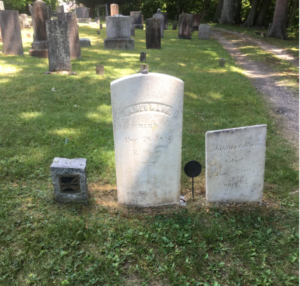History Faculty Rhonan Mokriski ’90 and his students embarked on a project-based learning course this year entitled, “Searching for Slavery in Northwest Connecticut.” The goal was to engage students as public historians in authentic tasks to discover and share the local contributions people of color have made to the building of our communities.
To prepare, over the summer, Rhonan helped facilitate a Connecticut Association of Independent Schools webinar for educators on how to rethink lessons on racism and slavery. His program was featured in the New Haven Register, and enabled him to tee up a number of projects when the boys returned this fall. Continue reading.
#JamesMarsCT50
Salisbury School Students Chronicle the Lives of African Americans

A blog on the Atlantic Black Box Project, started on December 24, 2020.
History teacher Rhonan Mokriski and his students at the Salisbury School have been pursuing a project-based learning course in public history focused on uncovering the lives of free and enslaved African American families in northwestern Connecticut. Continue reading.
Searching for Slavery in the Northwest Corner of Connecticut

By Rhonan Mokriski on The Atlantic Black Box Project on August 1, 2020
I teach at an independent school in the sleepy Connecticut town of Salisbury (pop 3,598 in 2018). I have been living here for 24 years. My lens has been largely focused on world history – particularly China – so beyond the normal US survey idea of slavery, this is a topic that I knew relatively little about. Until really recently, I was always of a mind that slavery happened “down there.” Since I’ve been engaged in the work, I’ve been amazed at how steeped Connecticut generally, and the Upper Housatonic River Valley region specifically, is in this history. Continue reading.
The Atlantic Black Box Project is a public history project that empowers communities throughout New England to take up the critical work of researching and reckoning with our region’s complicity in the slave trade and our extensive involvement in the global economy of enslavement. This grassroots historical recovery movement is powered by citizen historians and guided by a broad coalition of scholars, community leaders, educators, archivists, museum professionals, antiracism activists, and artists.


